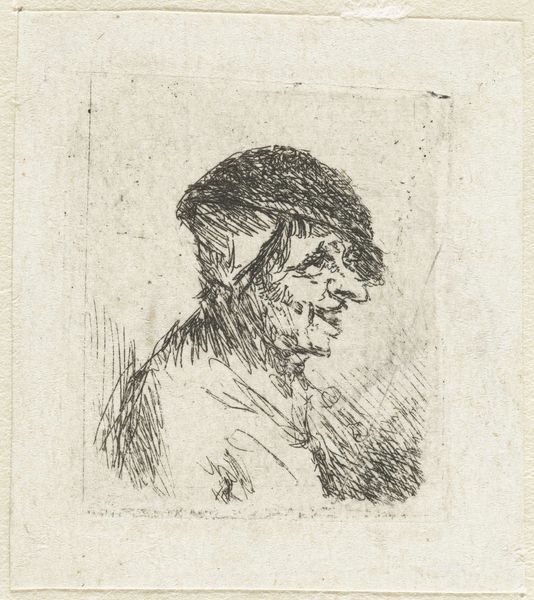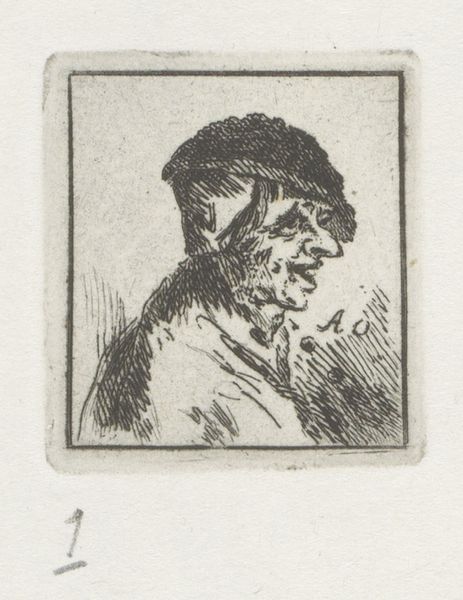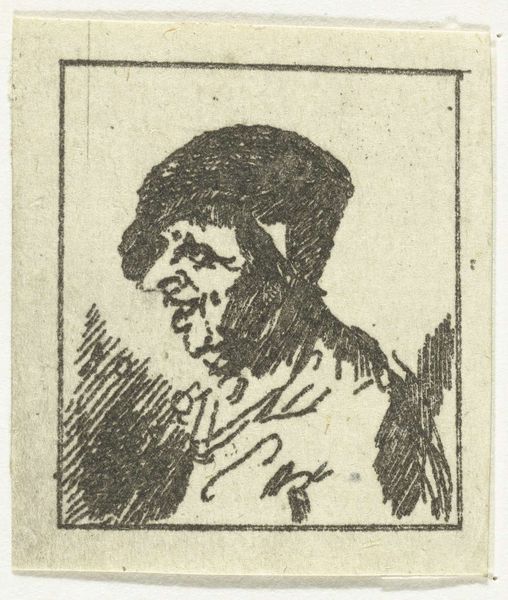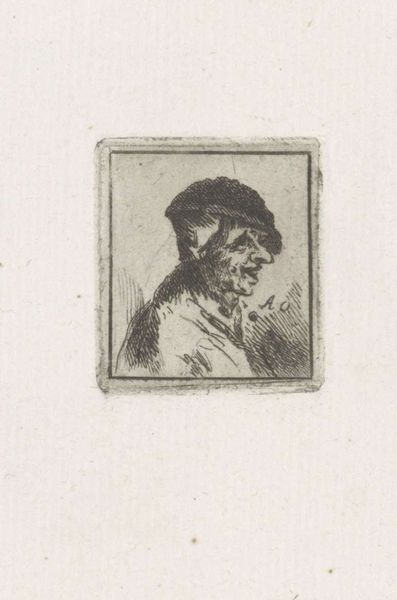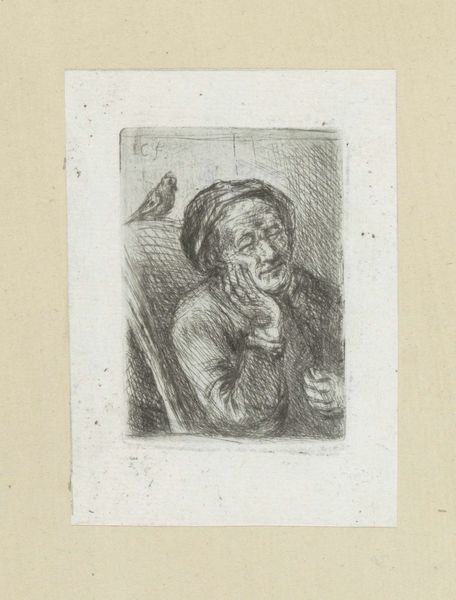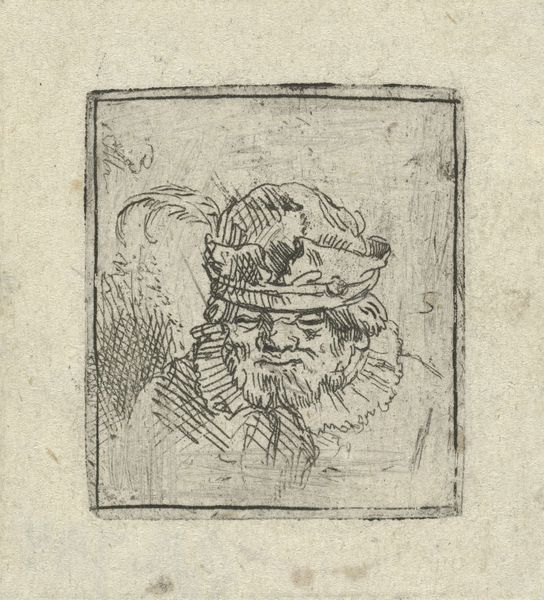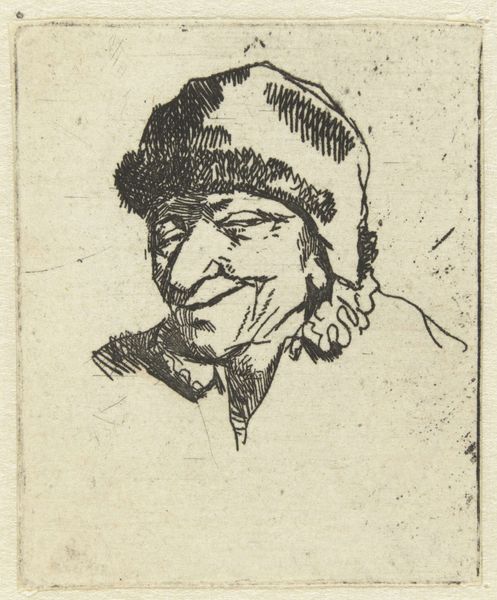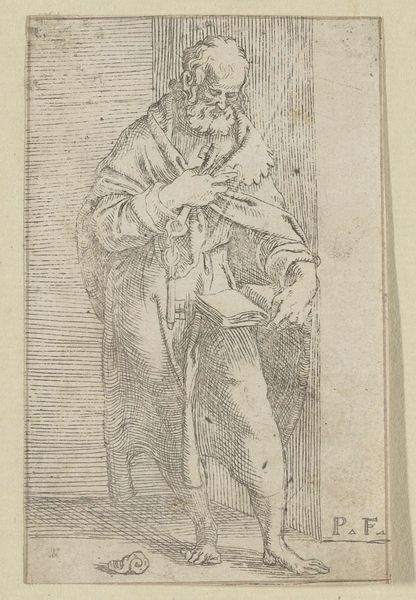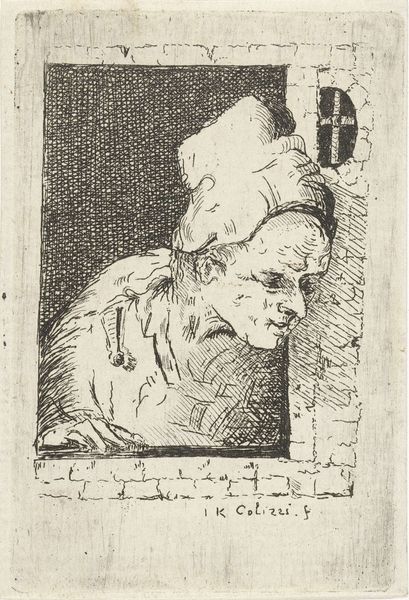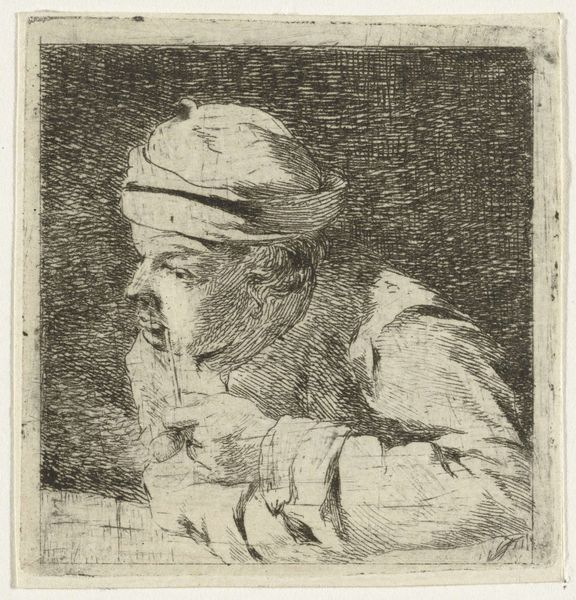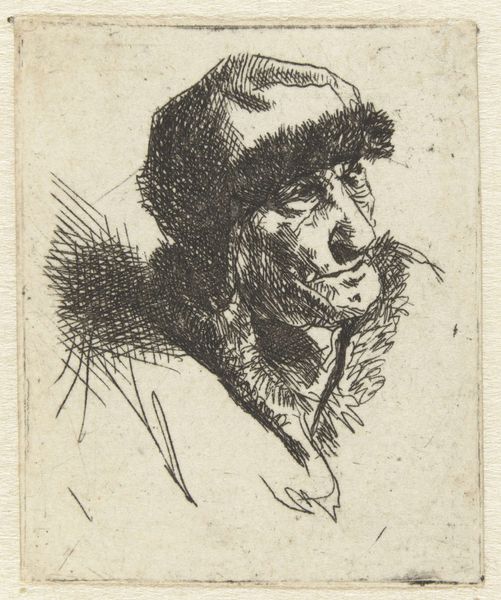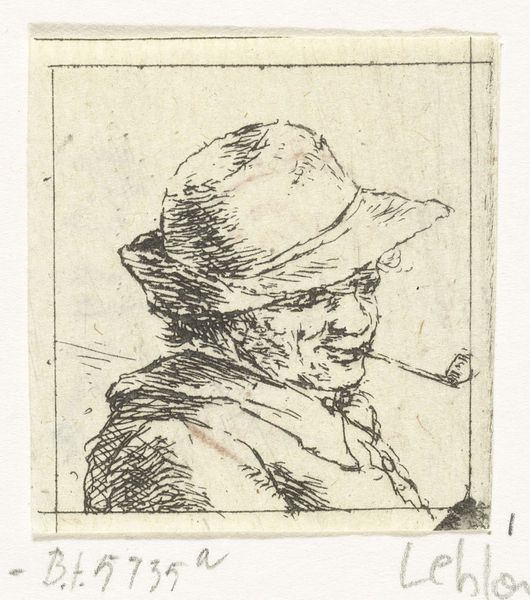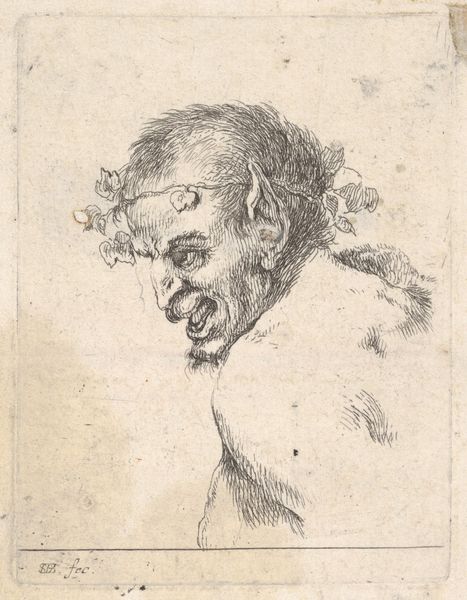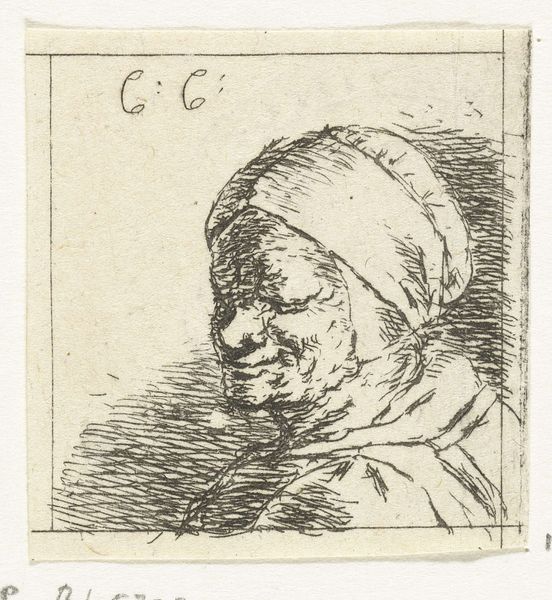
drawing, etching, paper, ink
#
portrait
#
drawing
#
aged paper
#
toned paper
#
dutch-golden-age
#
pen sketch
#
etching
#
pencil sketch
#
old engraving style
#
figuration
#
paper
#
personal sketchbook
#
ink
#
ink drawing experimentation
#
pen-ink sketch
#
sketchbook drawing
#
genre-painting
#
sketchbook art
#
realism
Dimensions: height 34 mm, width 29 mm
Copyright: Rijks Museum: Open Domain
Curator: Immediately, the stark contrasts grab you, don’t they? The artist's command of light and shadow is really evident. Editor: We are looking at "Buste van een lachende boer", or "Bust of a Laughing Peasant," a compelling etching by Adriaen van Ostade, created between 1650 and 1652. It is held here at the Rijksmuseum. To me, it exudes a sense of jovial world-weariness. Curator: Indeed, Ostade masterfully utilizes etching techniques to capture a mood. Look at the lines; they are not just descriptive, they add character to the man. The loose cross-hatching to suggest volume and the darker patches really shape his rough features. Editor: Let's situate this within its historical moment. Dutch Golden Age art often romanticized everyday life, but sometimes it risks glossing over harsh realities. How do we reconcile the "laughing peasant" with the known struggles of that class during this time? It might be seen to endorse classist attitudes. Curator: The image resists any simplistic reading. His smile might be read as a kind of subversive humor, a survival mechanism under hardship. The slightly aged paper almost seems to bear witness to these socio-historical contexts. Editor: Beyond its social dimensions, consider how effectively Ostade uses compositional economy. The figure occupies almost the entire frame. Every stroke of ink works together to suggest not just a face, but also, perhaps, an embodiment of a particular societal type. The subject of laughter and what it represents are also really compelling. Is it carefree joy, or desperate mania? Curator: Ultimately, van Ostade’s peasant is an imperfect, interesting portrayal. It’s the interplay between representation and historical backdrop that make this etching endlessly rich and somewhat haunting. Editor: Absolutely, whether we analyze this drawing through lines, or place it within its time, it is impossible not to appreciate the technical brilliance, which manages to convey so much with relatively simple means.
Comments
No comments
Be the first to comment and join the conversation on the ultimate creative platform.
